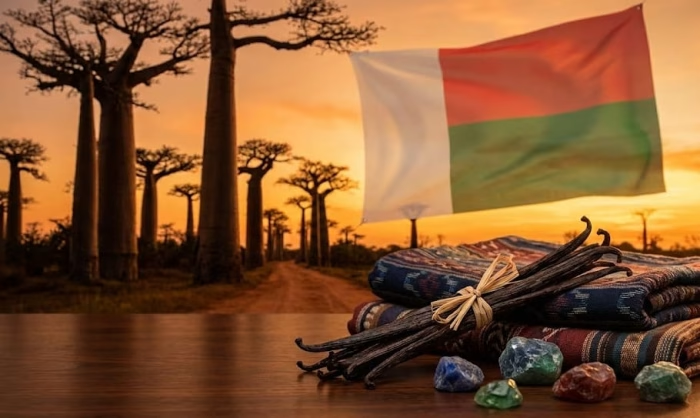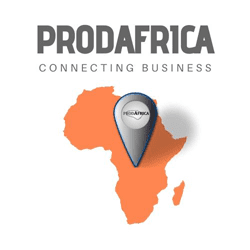Doing Business in Madagascar. When analyzing the economic landscape of Africa, one of the continent’s most unique and strategic actors is often overlooked: Madagascar. Situated at the crossroads between Africa and Asia, the world’s fourth-largest island is much more than a destination known for exotic biodiversity; it is an emerging market with significant growth potential and key sectors ready for Foreign Direct Investment (FDI).
At ProdAfrica Business Directory, we analyze why Madagascar should be on the radar for diversifying portfolios and establishing trade alliances this fiscal year, looking far beyond its world-famous vanilla.

1. Agribusiness: The World Leader in Spices and Aromas
It is impossible to discuss the Malagasy economy without mentioning its dominance in the spice market. Madagascar is the world’s leading producer of vanilla, controlling approximately 80% of the global market. However, for the smart investor, the opportunity lies not just in purchasing raw materials, but in the value chain.
Both the government and the private sector are encouraging local transformation. There are significant opportunities for companies specializing in agricultural machinery, processing technologies, and packaging to export finished products with higher margins. Beyond vanilla, Madagascar excels in:
- Cloves and Lychees: Ranking among the largest exporters in the Southern Hemisphere.
- Fine Flavor Cocoa: Highly valued by the European chocolate industry for its unique profile.
- Essential Oils: The production of Ylang-Ylang and Ravintsara is vital for the global cosmetic and pharmaceutical industries.
2. Textile and Manufacturing: The Competitive Alternative
One of the best-kept secrets of Madagascar’s economy is its robust textile industry. The country has positioned itself as a viable and competitive alternative to traditional Asian markets.
Madagascar’s competitive advantage in this sector is built on two fundamental pillars:
- Skilled and Competitive Workforce: The dexterity and adaptability of the local labor force are internationally recognized.
- Preferential Market Access: Through the African Growth and Opportunity Act (AGOA) with the United States and the Economic Partnership Agreement (EPA) with the European Union, textile products manufactured in Madagascar enter the world’s largest consumer markets duty-free.
For fashion brands and wholesale importers, searching for manufacturing partners in the ProdAfrica directory can mean a drastic reduction in operating costs without sacrificing quality.
3. Mining and Strategic Resources
The subsoil of Madagascar is geologically rich and diverse. The country possesses significant deposits of minerals critical for the global energy transition and technology sectors. Notable resources include nickel and cobalt (essential for electric vehicle batteries), as well as ilmenite and chrome.
Furthermore, the island is famous for its gemstones (sapphires, rubies, and emeralds). The sector is seeking professionalization, opening the door for foreign companies that can provide sustainable extraction technology, heavy machinery, and geological consulting.
4. Tourism and Hospitality: A High-Value Niche
Unlike mass-market destinations, Madagascar offers a niche tourism model focused on nature and adventure. With 90% of its flora and fauna being endemic, the country attracts a high-net-worth tourist profile.
Current hotel infrastructure has room for improvement. There is an unsatisfied demand for luxury eco-lodges, boutique hotels, and quality tourist transport services. Real estate investors and hotel chains have fertile ground here (“Greenfield investments”) to develop projects that respect the environment while generating high returns.
5. BPO and ICT Services: The New Francophone Hub
Antananarivo, the capital, is emerging as a nerve center for Business Process Outsourcing (BPO). Thanks to a young, highly educated population with native-level French (and growing English proficiency), many European companies are relocating their customer service centers, web development, and data management operations to the island.
Connectivity has improved drastically with the arrival of new submarine fiber optic cables, allowing for stable, high-speed digital services.
Challenges and Recommendations for Investors
Doing business in Madagascar requires a nuanced understanding of the local environment. While opportunities are vast, logistical and bureaucratic challenges exist. Therefore, the key to success lies in Due Diligence and finding the right local partner.
Do not attempt to navigate the market alone. Connecting with established companies, local legal consultants, and verified distributors is the first step to mitigating risks.
Connect with Madagascar through ProdAfrica
Madagascar is open for business. Whether you are looking to import essential oils, manufacture garments, or invest in mining, the “Great Island” offers potential that few emerging markets can match today.
To facilitate your entry into this market, use the ProdAfrica business directory. Add your company. Our platform connects you with African businesses, fostering a transparent and efficient business ecosystem.

Team ProdAfrica
team@prodafrica.com